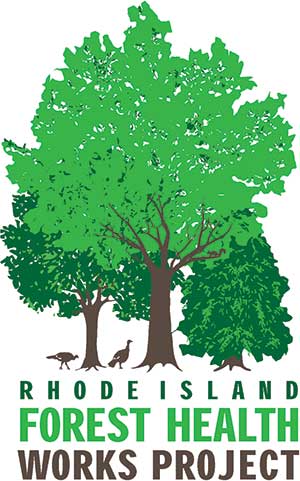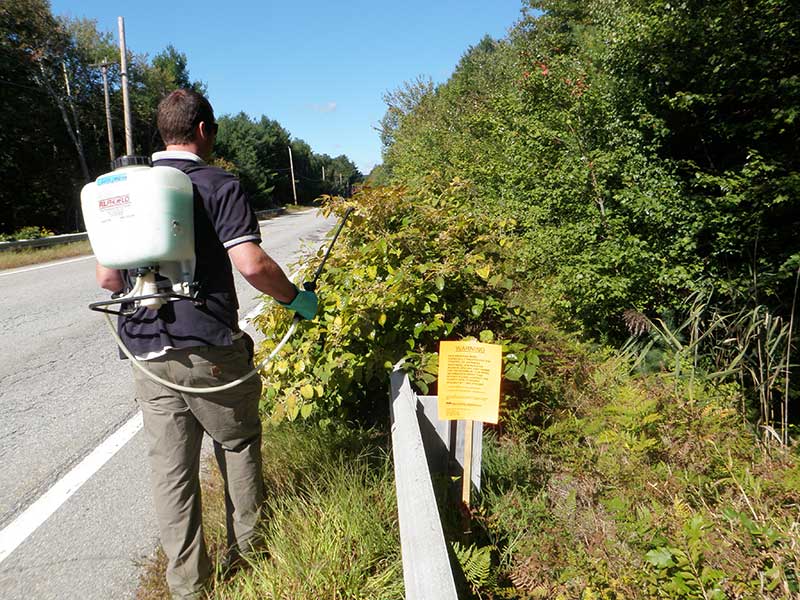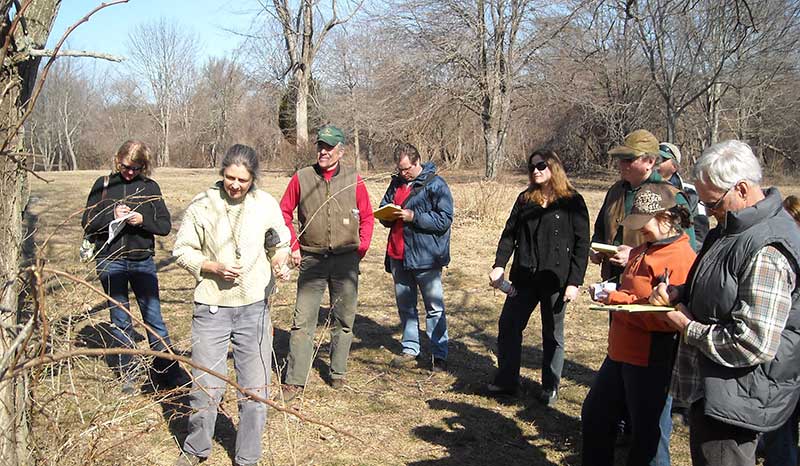
Welcome to the Forest Health Works Project (FHWP). Rhode Island’s forests contribute significantly to the state’s economy and environment yet their health is in jeopardy due to a growing number of threats including fragmentation, climate change, and invasive species.
The Forest Health Works Project started out in 2009 as a partnership between the Survey and the Rhode Island DEM funded with a competitive grant from the US Forest Service, focused on job training and job creation in the landscaping, arborist, nursery, and related industries.
2022- : Today, FHWP is funded by a $4M grant from the USDA-NRCS Regional Conservation Partnership Program to permanently protect thousands of acres of forest land to combat fragmentation and deploy forest management plans and restoration funding to improve wildlife habitat. The grant is to DEM’s Division of Ag. & Forestry and, in addition to the Survey, includes the RI Land Trust Council, University of Rhode Island, and The Nature Conservancy as partners.
Visit back here for news about the new funding and the forest projects it supports.

2009-2011: Forest Health Works Project was a partnership between the Rhode Island Department of Environmental Management and RINHS to combat invasive plants degrading forests. It was funded with $673,000 in federal stimulus funds received through the U.S. Forest Service through a competitive proposal process. This project mapped 60,000 acres, eradicated invasives on 161 acres, trained and employed workers in 27 local businesses, directly hired half a dozen full and part-time managers and field crew, and reached 2,300 members of the public through outreach programs. Both Rhody NativeTM and Youth Conservation League began as part of the FHWP.

The FHWP was uniquely focused on job training and job creation for Rhode Islanders in the landscaping, arborist, nursery, and related industries. A summary report is available in the Resource Library. The full FHWP Final Report is too large for easy digital distribution. If you would like a copy of the report or more information, please contact the office.